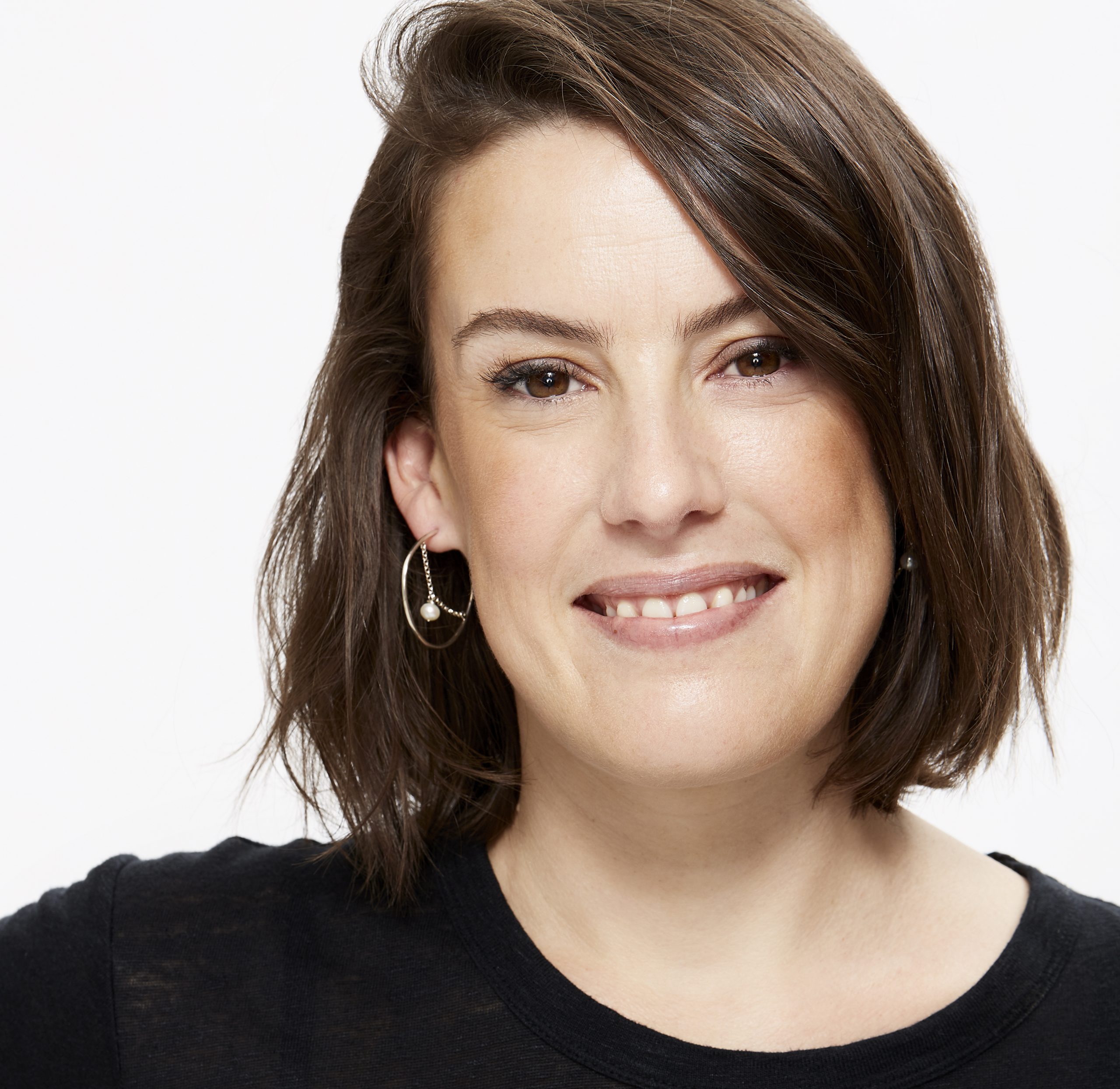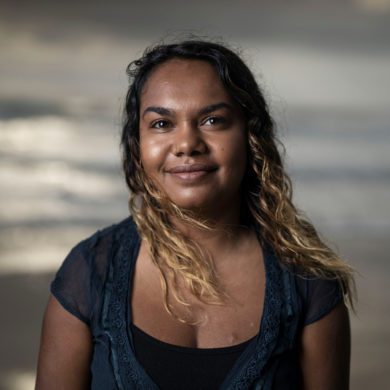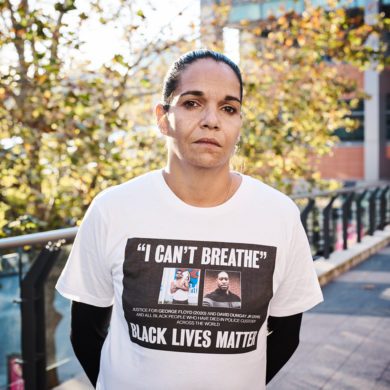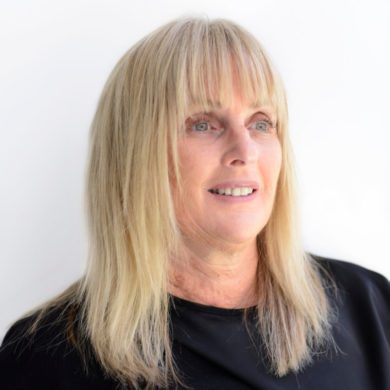It’s 11am and the co-founder of one of the world’s fastest-growing youth platforms is taking a rare break from the news cycle to talk to me about her website’s phenomenal success.
The stats that Lucy Blakiston reels off are impressive: 1.8 million followers on Instagram, 100,000 unique monthly viewers online, and a global fan base that stretches from the US to Australia. The success of the platform, which offers a digestible and activist take on the news, is even more remarkable when you consider that it launched less than two years ago.
“To be honest, none of us thought this would happen,” says Blakiston, as she adjusts her oversized, clear-rimmed glasses and laughs. “I thought maybe 10,000 followers would be great. It’s hard to even comprehend the idea [of millions of] people.”
To be honest, none of us thought this would happen.
Blakiston is talking to me over Zoom, and, like most of us, she’s working from home.
Only it’s not her home she’s working from. It’s her parents’ place in the sleepy town of Blenheim, at the top of New Zealand’s South Island. “I actually just had to kick my younger brother out of the room to do this call.” And Lucy isn’t your typical CEO – she’s just 22 (her co-founders Olivia Mercer and Ruby Edwards are 22 and 23 respectively).
Do fans of SYSCA – or, to refer to it with its full name: Shit You Should Care About – realise that this global website, which covers hard-hitting news and activist campaigns and boasts an audience that’s half American, is run by three 20-somethings still living with their parents in a tiny, semi-rural town in New Zealand?
“No, not many of them,” laughs Blakiston. “People seem to think we’re some corporation in the US. But it’s never something we’ve hidden.”
It’s SYSCA’s organic and youth-driven approach that has been the key to its success. At a time when most news outlets are struggling to reach under 35s – with the average television news viewer in their 60s – SYSCA has unlocked a vast millennial audience. Eighty per cent of their followers are under 35, and they’ve built an Instagram following that’s bigger than The Sydney Morning Herald, ABC News, The New Zealand Herald, Pedestrian TV and Vogue Australia combined – making it a key news source for millennials and Gen Z.
Their secret? Content is presented in the form of punchy, shareable graphics, and the topics they cover – from climate change to racism, women’s rights to genocide – are a clarion call to Gen Z, often described as the world’s most activist generation.
Blakiston came up with the idea for SYSCA (which she pronounces “sis-ca”) in late 2018, thanks to a growing sense of frustration with mainstream news. “We were all studying media… and I was writing for a publication at the time that was putting heaps of parameters around what I could say or share about,” says Blakiston, who had recently been to Myanmar, where she was shocked to learn about the treatment of the Rohingya people. The experience sparked an idealistic zeal to focus on issues that mattered.
I was writing for a publication at the time that was putting heaps of parameters around what I could say or share about
“So, I was sitting in a lecture one day, and I texted Ruby and Liv – we’ve been like sisters since we were 15 – and asked them if they wanted to start something called ‘Shit You Should Care About”. It was completely just a passion project,” she adds.
In some ways SYSCA remains a passion project, albeit one that’s now also a full-time commitment. One of the co-founders is up at 7am every morning (which thanks to New Zealand’s time zone means they are scanning the news before anyone else in the world). Blakiston and Edwards then spend the morning together (at, yes, Blakiston’s mum’s house) creating content, editing stories, responding to emails and, as the platform grows, increasingly working with accountants and lawyers to put structure around the company.
“People are relying on us to do good work. We can’t just have a few days off here and there. We’re a service now that people come to.”
The trio’s main objective is to “make the news accessible”. “We’re not interested in breaking the news… it’s important to have really good journalists out there breaking news. But we just want to make it accessible and understandable. We serve it up in a way that people understand,” she says, adding “You shouldn’t have to have a degree to understand a news story.”
For SYSCA, this means translating complex topics into shareable and bite-sized social media memes. The trio also hosts a podcast, and runs several original first-person pieces – largely submitted by SYSCA readers around the world – on their website every day. Blakiston says the site isn’t political “but, I mean, we’re anti-Trump”.
Blakiston, who has long blonde hair and a direct but self-deprecating manner, is at pains to explain that, despite her journalism degree, she doesn’t call herself a journalist. She also isn’t interested in promoting herself, which is why you won’t find any photos of her or her co-founders online (or accompanying this story). “For us it’s about championing other people’s voices. It’s not about us at all.”
The success of SYSCA hasn’t gone unnoticed, with a growing number of similar pages emerging. Not that Blakiston’s worried. “There’s just no downside to more people giving a shit. If it’s reliable information and it’s shareable, well, all power to those accounts.”
There’s just no downside to more people giving a shit
Of course, a popular social media account doesn’t necessarily equate to a successful – or profitable – media company, and an Instagram page featuring politically-charged news is trickier to monetise than, say, a luxury beauty website.
However, the platform has begun to work with handpicked “purposeful” brands on paid content partnerships, and the trio have big plans for their own brand. “We’d love to have a really big and diverse team – you know, correspondents from around the world that we could pay… to hear their voices…. We know that in the blink of an eye Instagram could go away and people could move on from social media.”
As for social media, does Blakiston believe that online activism (cynically dubbed “clicktivism”) can truly make a tangible difference? “It’s definitely changed over the past few months,” she says, noting that the Black Lives Matter movement has prompted a shift in consciousness. “People are sharing [content], sure, but everyone’s also asking, ‘Okay, how can I help?’”
People are sharing [content], sure, but everyone’s also asking, ‘Okay, how can I help?
It’s difficult to track SYSCA’s financial impact, says Blakiston. However, earlier in the year, they agreed to post about a charity drive for victims of the crisis in Yemen. “The day before [we promoted it on our channels] they had, like $6k [in donations]. We went back the next day to see how we’d helped – or if we’d helped – and they’d raised $200k… and they emailed us and said, ‘You sharing this has really helped”.”
She is also adamant that Gen Z is genuinely more activist than previous generations. “My [17-year-old] brother and his girlfriend, for example, are so much more politically aware and interested than I was at high school and it’s amazing to see. It’s a really interesting time. I think people are increasingly using social media to show what they care about – not just the food they got on the weekend or the coffee they drank. So, yeah, I do think that young people really want to be activist.”
We’ve been speaking for 45 minutes, and I can sense that Blakiston is keen to get back to work. So, where does she she SYSCA in a few years’ time? “Hopefully doing what we’re doing. But even more meaningful – and reaching even more people.”
Want more stories like this? Sign up to PRIMER’s weekly newsletter here














No Comments